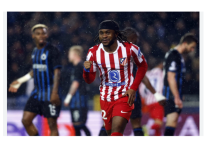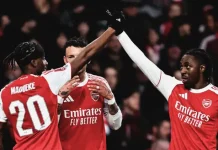Reality TV star Kiddwaya has found himself at the center of a storm—not on the Big Brother stage, but in the eye of Nigeria’s ongoing humanitarian tragedy in Benue State.
His recent call for public donations to support victims of brutal attacks has ignited sharp criticism, with many accusing him of poor judgment, self-promotion, and a lack of transparency.
Benue in Crisis: The Human Toll
The situation in Benue State has grown dire. Since the start of 2025, a wave of violent herder-farmer clashes and armed attacks has left hundreds dead and thousands displaced. Entire villages have been razed, families torn apart, and communities left to survive in makeshift shelters with little access to food, medicine, or security.
Activists and humanitarian groups have called it a “slow genocide”, pleading with the federal government for urgent, coordinated intervention.
Kiddwaya’s Fundraising Gambit
Against this backdrop, Kiddwaya, son of billionaire Terry Waya and a former Big Brother Naija contestant, posted a passionate video on social media urging followers to donate funds to support those affected.
But what followed wasn’t applause—it was outrage.
Critics flooded comment sections, asking:
“Who’s collecting this money, and where’s it going?”
“Why not partner with credible NGOs already on ground?”
“Is this genuine concern or just a clout-chasing stunt?”
Some suggested Kiddwaya’s move smacked of tone-deafness, especially given his affluent background and public persona often steeped in luxury.
NGOs & Locals Speak Up
The Sankera Peace and Development Forum and other grassroots organizations are already actively coordinating aid efforts, working with international NGOs and federal agencies.
The Christian Association of Nigeria (CAN) has also stepped in, appealing to President Bola Tinubu and deploying food and medical support in hard-hit communities.
These groups caution against parallel or unauthorized fundraising, noting that it can confuse donors, create overlap, or worse, divert help away from where it’s most needed.
Public Trust on the Line
Social media has been split between defenders of Kiddwaya—who argue his intent may be noble—and those calling for accountability, clarity, and proper channeling of influence.
“Celebrity influence is powerful,” one commenter wrote, “but misusing it during a humanitarian crisis is reckless.”
Experts emphasize that in moments of mass tragedy, misguided initiatives—even with good intentions—can sow chaos rather than deliver relief.
The Bigger Picture
Kiddwaya’s donation appeal exposes a larger issue: the role of celebrities in national emergencies. Visibility comes with responsibility, especially when lives are at stake. While Kiddwaya may have hoped to help, the backlash shows that amplifying trusted efforts, not improvising your own, is often the most impactful move.
Final Word
In a crisis as grave as the Benue killings, good intentions are not enough—strategy, transparency, and alignment with official efforts are non-negotiable. Kiddwaya’s stumble is a cautionary tale for public figures: when tragedy strikes, don’t rush to lead—listen, partner, and support what’s already working.
































